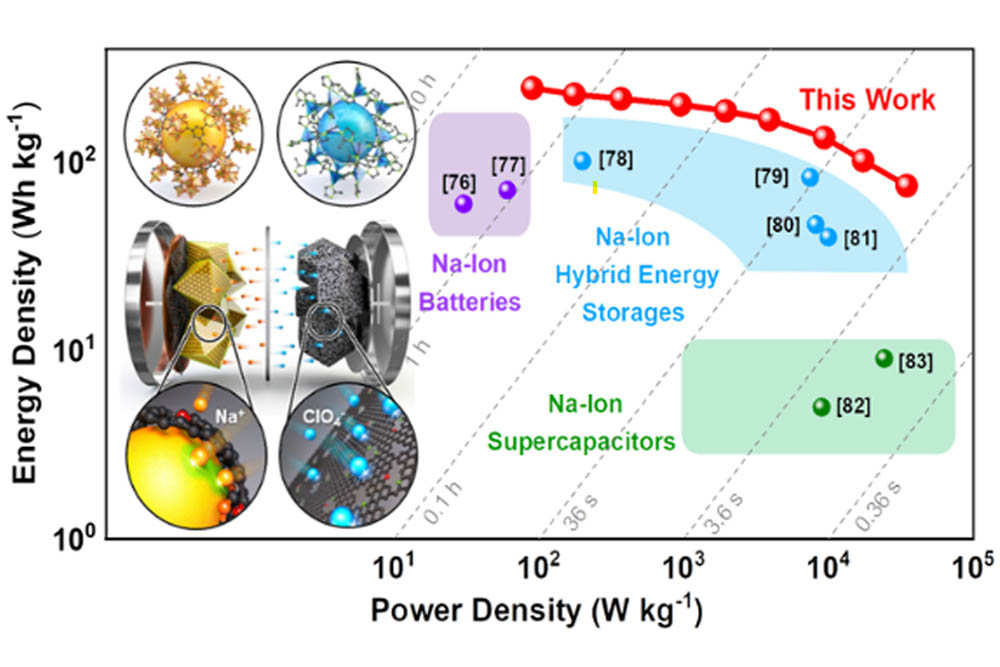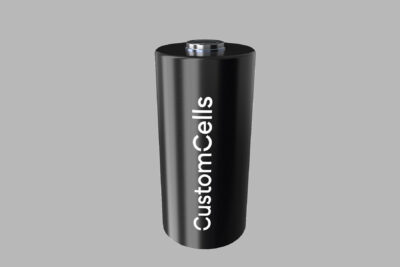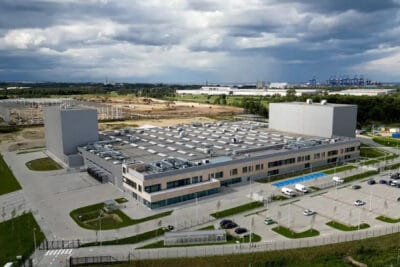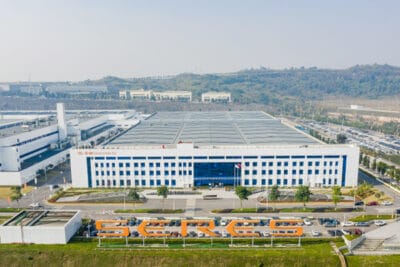Korean researchers are fine-tuning a hybrid sodium-ion battery
As the research institute reports, the new development is a hybrid design that combines an improved anode material with a cathode material that is suitable for supercapacitors. According to the research team, this combination makes it possible to achieve both high storage capacities and fast charging and discharging rates. This makes the technology “a viable next-generation alternative to lithium-ion batteries”, according to KAIST.
The research team published the results of their research to date at the end of March in the international journal Energy Storage Materials under the title “Low-crystallinity conductive multivalence iron sulfide-embedded S-doped anode and high-surface-area O-doped cathode of 3D porous N-rich graphitic carbon frameworks for high-performance sodium-ion hybrid energy storages”. An energy density of 247 Wh/kg and a power density of 34,748 W/kg are given as specific performance values for the sodium-ion battery. Professor Jeung Ku Kang, head of the research team, anticipates a wider application of the new development in various electronic devices, including electric vehicles.
Sodium batteries are an approach that has re-emerged in recent years and would bring a clear cost reduction in the electric car sector. After all, the low-cost sodium replaces lithium, which has now become very expensive. However, there is a downside: conventional sodium-ion batteries are known to have a lower energy density. We recently asked Markus Lienkamp, Professor of Automotive Engineering at the Technical University of Munich, what role the sodium-ion battery can still play in electromobility. You can read his answer here.
China’s big players are increasingly turning to sodium-ion batteries: at the end of 2023, BYD and Huaihai signed a contract to build a plant for sodium-ion batteries in China with an annual capacity of 30 GWh. CATL is also planning to produce sodium-ion cells. In February, we also received the news that the JAC brand Yiwei recently exported its first batch of electric vehicles with sodium-ion batteries.
Meanwhile, KAIST is not only researching sodium-ion batteries. Together with the South Korean battery manufacturer LG Energy Solution, the research centre is also pushing ahead with the development of lithium metal batteries – using a liquid electrolyte based on borate pyran.





0 Comments